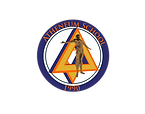Chronicles of the People, Soul of the Nation
- Mae Alessandra Ysabelle Camba
- Nov 26, 2024
- 3 min read
Updated: Nov 28, 2024

“Aling pag-ibig pa ang hihigit kaya sa pagkadalisay at pagkadakila. Gaya ng pag-ibig sa tinubuang lupa. Aling pag-ibig pa? Wala na nga wala.” (What love can be purer and greater than love of country? What love? No other love, none.)
Thus exclaimed by one of our country’s renowned heroes, Andres Bonifacio, in a poem he wrote entitled, “Pag-ibig sa Tinubuang Lupa.” (Love of Country). The nation’s love for the country is thoroughly felt every August where we celebrate numerous events to honor the Philippines’ history and heritage. A month where the Philippines celebrate events that are tied to the roots of Filipinos. Aside from National Heroes Day (Araw ng mga Bayani), our country also celebrate both National Language Month (Buwan ng Wika) and National History Month (Buwan ng Kasaysayan) — events where we take the time to look back and reflect on how our language and history, together with the people who helped write it, shaped the country as it is now.
Memoirs of the Folk
The National Language Month or Buwan ng Wika is a yearly celebration that honors the day when our country finally obtained its very own language, turning it into our primary language, introduced by Proclamation No. 1041, signed by former president Fidel V. Ramos on February 15, 1997. This event coincides with the birth of the late president Manuel L. Quezon, who is known to be the “Father of the National Language.” With more than 170 dialects spoken in the country, having a month-long celebration like the National Language Month allows everyone to be able to cherish the language that connects every individual, the tool that enables people to freely express their emotions.
Under Spanish rule, the country lacked a language that could unite its people. It was only after the Americans arrived and the Philippines became part of the commonwealth did the country had Filipino as its very own official language, as declared by the 1937 Philippine Constitution. Aside from coinciding with the birth of the late president Quezon, the event also serves as a commemoration for him, as he was the one who unified the variation of languages in the Philippines.
However, there are other notable individuals who pioneered this quest. The great nationalist, Lope K. Santos (also known as Ka Lope), dubbed the “Father of Filipino Grammar,” is also remembered during this celebration as he was the one who published the book, “Balarila ng Wikang Pambansa,” a foundation used by schools in teaching Filipino throughout the country. Besides president Quezon and Ka Lope, former president Sergio Osmeña as well as Fidel V. Ramos is honored too as they were the ones who issued “Linggo ng Wika” with the latter extending it to an entire “Buwan ng Wika.”
Heart of the Motherland
Other than the National Language Month, the month of August also marks the National History Month, highlighting the historical events that transpired during the eighth month of the year. Through the Proclamation No. 339, s. 2012, the event “History Week” which took place every September 15 to 21 was moved to August due to an array of events that happened within the month like the National Heroes Day, the anniversary of the Cry of Pugad Lawin (Ang Sigaw ng Pugad Lawin), the Battle of San Juan del Monte (Battle of Pinaglabanan), as well as the birth and death anniversaries of heroes and presidents.
Language is not just a collection of words written on a paper or spoken aloud. Language allowed us to enjoy the freedom our heroes fought so hard for in the same way as how history is what gave us our identity as Filipinos. Both became a mosaic reflecting the challenges our ancestors went through in order to give us the Philippines that we know today.





Comments